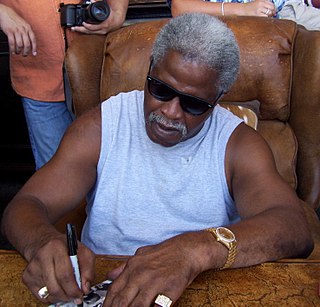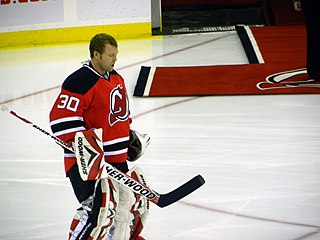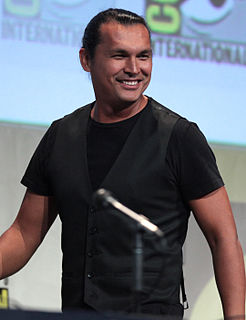A Quote by Earl Campbell
I had two things I could do: I could run over you, and I could put a good stiff arm on you. That was about it.
Related Quotes
He believed that he must, that he could and would recover the good things, the happy things, the easy tranquil things of life. He had made mistakes, but he could overlook these. He had been a fool, but that could be forgiven. The time wasted--must be relinquished. What else could one do about it? Things were too complex, but they might be reduced to simplicity again. Recovery was possible.
America was good enough to make a small compact lighter weight nuclear weapon. The Russians still had these big clunky heavy ones, so they had to build the big boosters in the arm's war, so now all of the sudden Russia could take off the shelf and put into orbit much heavier things than we could, so that's why they had the original leadership.
There's a lot of guys that are able to perform for a short period of time. It could be a week, it could be a month, it could be two months, it could be one season. It's doing it over and over. And being consistent was something that watching Patrick Roy all these years, that's what he was. He never had down years.
I think when I started acting it was the first time I got the freedom of expression. I was able to express certain emotions and feelings that I could put into other characters, so it was a good way for me to run away from ho I personally was. I could be a ninja, I could be a pirate or I could be in a play y'know.
A work can do many things at once, and it doesn't have to be just about the world, it could also be about photography, it could be about perception, it could be an exploration of the medium. It could be a document, it could be a visual poetry, and it could be a formal exploration all at the same time.
It could be anything. It could be Jesus and it could be the Furby and it could be the lint that lives in my navel, but it's probably not. Whatever it is, I doubt we as humans on Earth could have any perception of it while we're here. So, why give yourself a headache thinking about it. Just be a good person. That's what an ethicist is.
I figured if I could put together being funny about stuff and actual events, maybe I could do something that wasn't being done much. Because the reporters that I met out there were funny, and they had hilarious stories that just didn't fit in the AP/UPI/New York Times foreign-correspondent style. They couldn't use the things they had. But I could.
We were so wholly one I had not thought That we could die apart. I had not thought That I could move,—and you be stiff and still! That I could speak,—and you perforce be dumb! I think our heart-strings were, like warp and woof In some firm fabric, woven in and out; Your golden filaments in fair design Across my duller fibre.
You still could go to some industry or some university or the government and if you could persuade them you had something on the ball—why, then, they might put up the cash after cutting themselves in on just about all of the profits. And, naturally, they'd run the show because it was their money and all you had done was the sweating and the bleeding.
But he could not taste, he could not feel. In the teashop among the tables and the chattering waiters the appalling fear came over him- he could not feel. He could reason; he could read, Dante for example, quite easily…he could add up his bill; his brain was perfect; it must be the fault of the world then- that he could not feel.






































